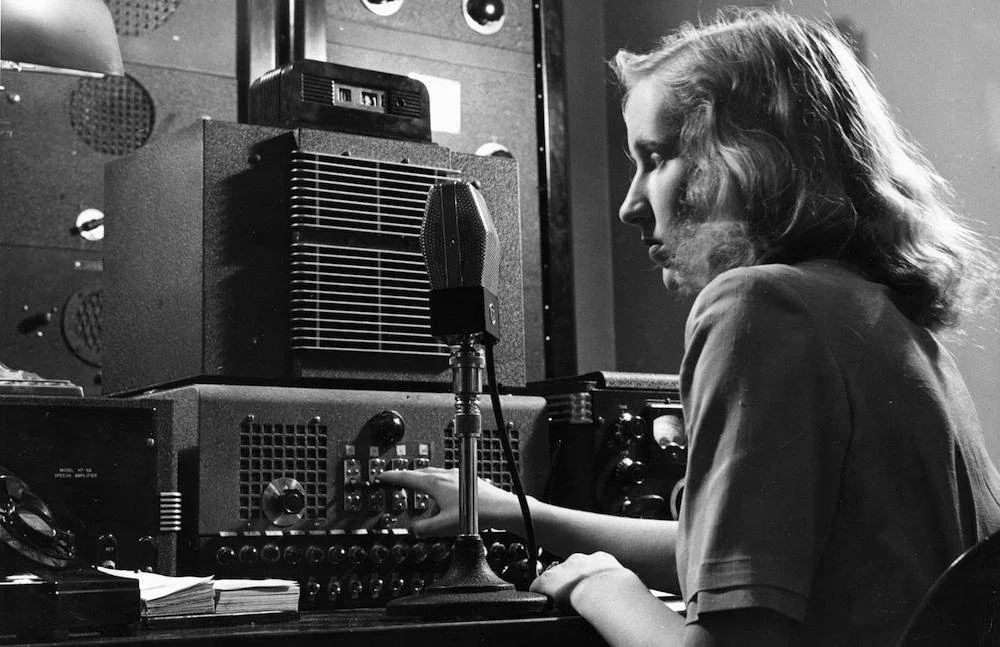Radio and its revolutionary effect were felt in Czechoslovakia just as it was in the rest of the world. It began with the first broadcasts, occurring before World War I, into the first Czech-produced program in late 1919. Of course, as radio technology progressed and advanced, its use as a medium for propaganda grew more and more robust. Despite its use in propaganda, radio also served as a tool to disseminate important information about the nation and the world at-large.
Božena Hauserová (1914 - 2009)
Božena Hauserová was a lawyer turned CIA operative for the United States to help fight against Germany during the World War. She and her husband, Charles Lauwers, moved to the United States in 1941 after hearing news of the war, after which she enlisted, following her husband. In 1944, she participated in Operation “Sauerkraut,” where she’d spread rumors, provide fake orders, and pass around discouraging leaflets, all to spread propaganda among German soldiers. Her work was a success, being declassified after her death in 2009.
Hans Krasa and Terezin
Born in 1899, Krasa was a young musical prodigy who composed his first songs at the age of ten. By the age of 39, he would compose his most famous song, Brundibar. By the age of 40, in 1939, the occupation of Czechoslovakia by Nazi Germany took place. After their occupation, Krasa was arrested by the Nazis and deported to the Terezin concentration camp, forced to compose as a part of a propagandic smokescreen.
Cinema Under Communism: The Czech New Wave
The Czech New Wave was an important film movement led by daring, rebellious film directors in the sixties. Since the nationalization of the film industry in 1945, cinema had gone stale. In the fifties, each film adhered so tightly to the standards set by the communist government that moviegoers found themselves bored in the theatres. Plot threads were entirely predictable and dogmatic, an aspect that would be criticized extensively during the movement (Kehr 2008).








